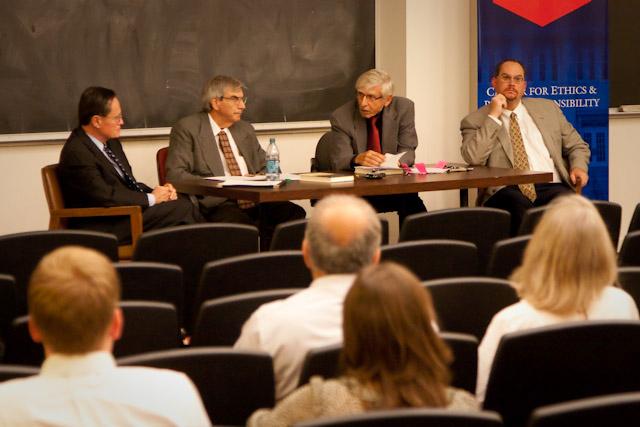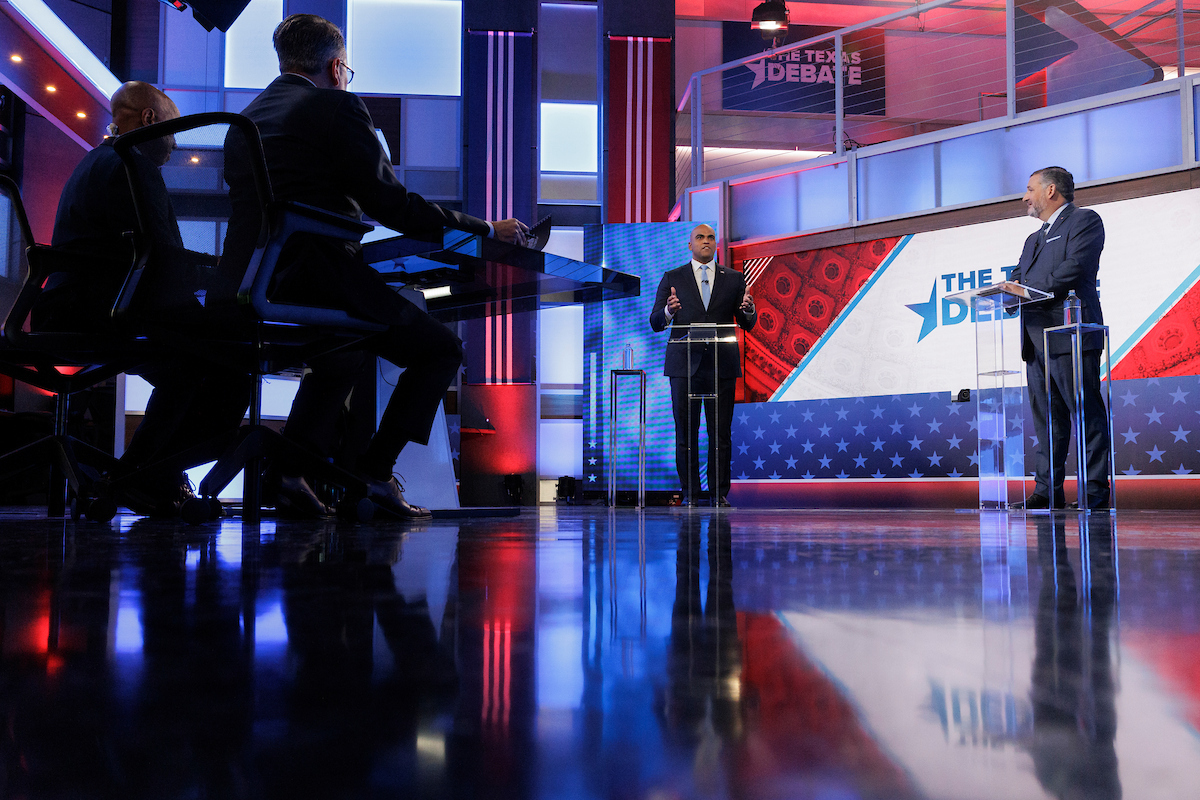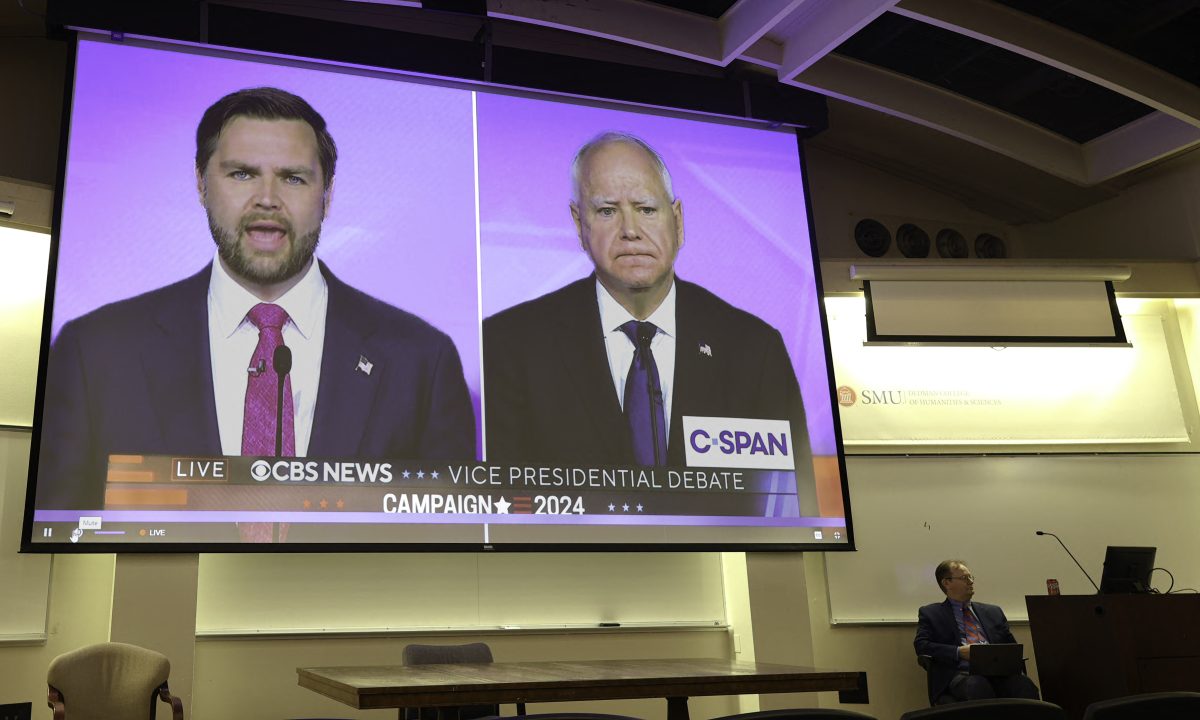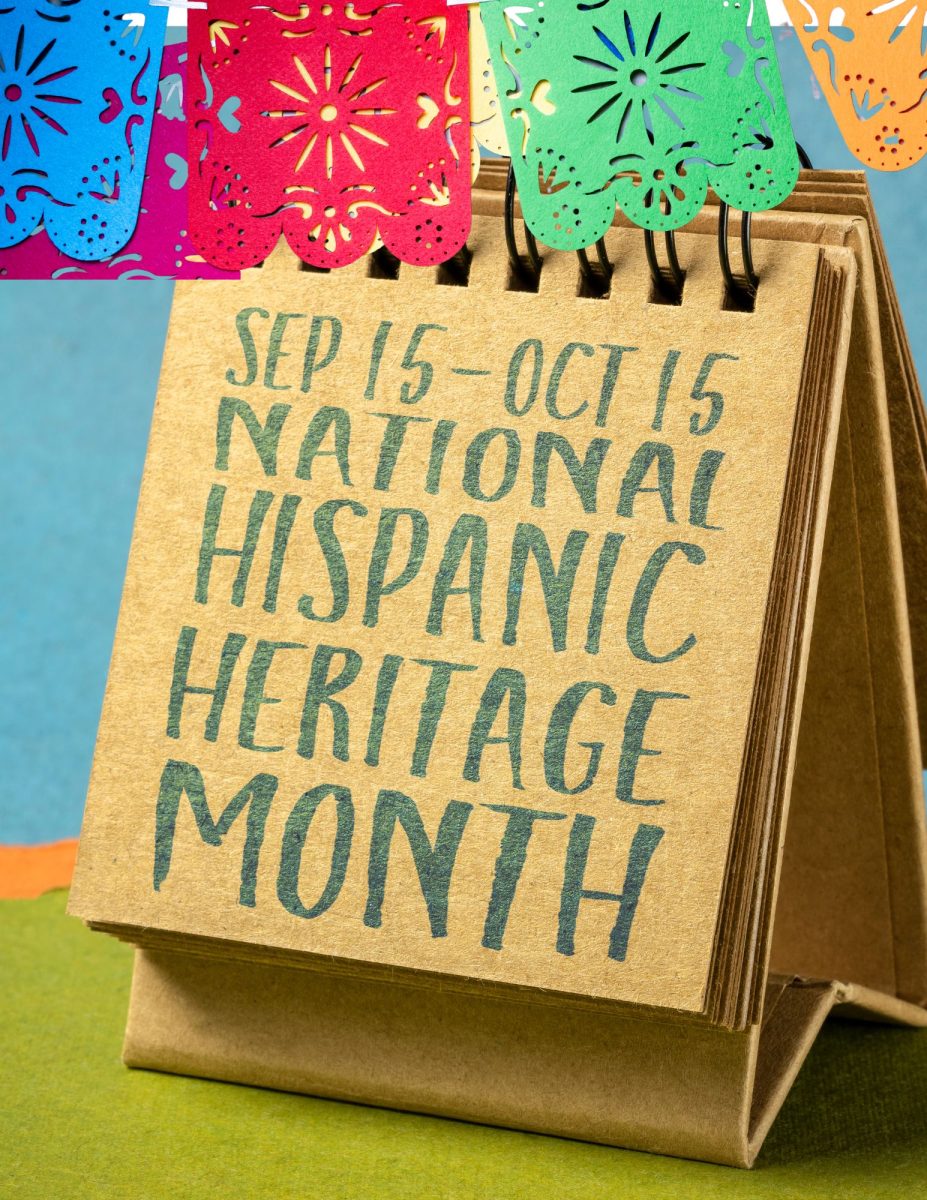
Professor Seyum Brown, the John Goodwin Tower Distinguished Chair in International Politics and National Security, discusses how the world has changed since the events of 9/11 during the “The Day the Whole World Watched” lecture at Dallas Hall Sunday afternoon. (Spencer J Eggers/The Daily Campus)
A panel convened Sunday in front of a small crowd to discuss how the U.S. has changed since 9/11, specifically honing in on the willingness of American citizens to sacrifice civil liberties in favor of higher security measures.
“Preoccupation with avoiding another 9/11 has caused us to transform our state, previously known as the cradle of liberty into a Big Brother state of the Orwellian nature,” said Seyom Brown, professor of political science at SMU, who used the Patriot Act as an example, saying that though its constitutionality had been challenged it was still defended on the grounds of security.
Matthew Wilson, also a political science professor,
questioned whether the U.S. had “turned a corner” in its understanding of civil liberties.
“Prior to 9/11 you could never have gained the groundswell support necessary for legislation like the patriot act,” he said.
He explained that since 9/11 the federal government has not only taken on public enhancements of security such as the now extensive process of getting on an airplane, but has also proliferated its use of warrantless wiretaps, surveillance and the monitoring of people’s associations within clubs and religious organizations.
Describing himself as “agnostic” on whether or not the expansion of state power has had a net positive impact on the nation, he explained that the discussion of national security at the expense of civil liberties is a classic example of “all or nothing policies,” in which politicians fail to adequately present trade-offs and instead choose peg policies as being only bad or only good — something he called “unsophisticated and unhelpful,” calling for more honest political discourse.
The panel also focused on the intersection between religion and politics, both in regard to the political agenda of the religious fanatics who executed the attacks as well as the political and religious response of the United States.
“Sept. 11 and the days that followed showed the intersection of religion and politics at its worst and most destructive and at its best and most transcendent,” Wilson said. “Religion was a glue that held people together, even across sectarian lines.”
Wilson discussed the members of congress who, the night after the attacks, joined hands and sang “God Bless America” rather than the national anthem.
In the same discussion of the rise of religiosity after the attacks, Robin Levin, an SMU ethics professor, said the mix of religious passion and fear led to things such as ethnic profiling.
Jeff Dumas, a public policy professor at the University of Texas at Dallas, critiqued the conduct of the wars in Iraq and Afghanistan noting that the modern tendency towards nation building does not serve the ends of limiting the base of support of the terrorists.
Explaining that nation building is unilateral in that the U.S. tells other nations what they need and gives it to them, he recognized that this caused the receiving nation to feel like “a charity case.”
In order to economically develop nations and eliminate the base of support terrorists are now gaining from our bombing campaigns, he instead advocated that the United States collaborate in economic development because “partners interact differently than subordinates.”








